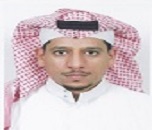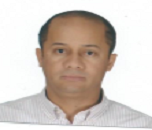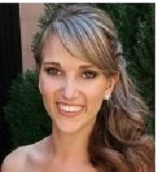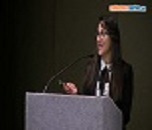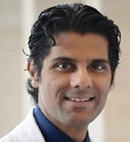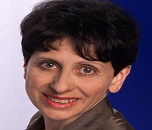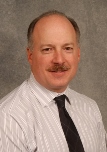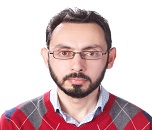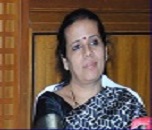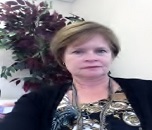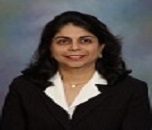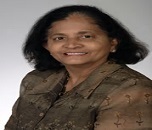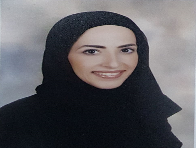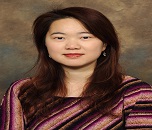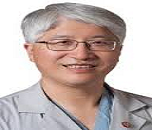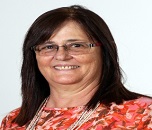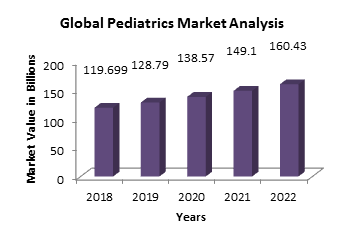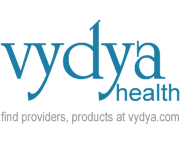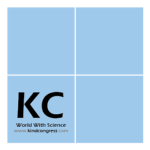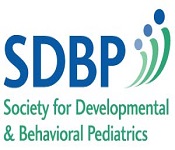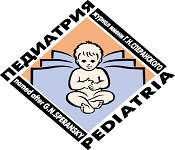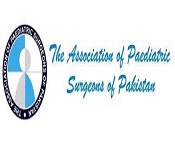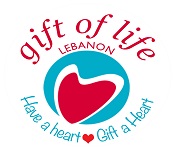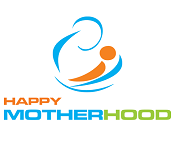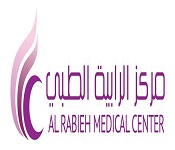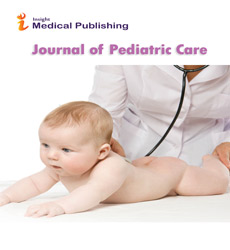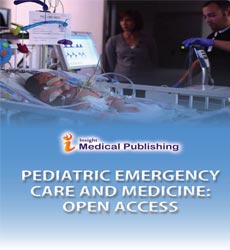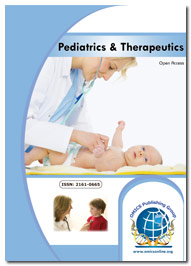Theme: Elucidating the challenges in Neonatology and Pediatrics
WPC 2018
We are delighted to invite you to attend the 12th World Pediatric Congress scheduled to take place in Abu Dhabi on December 13-15, 2018. The theme of the conference is “Elucidating the challenges in Neonatology and Pediatrics”. It is a great pleasure for us to welcome all the pediatric surgeons, paediatricians, researchers, students and delegates to take part in this upcoming congress to network, share views and knowledge through interactive keynote, poster and B2B discussions in the field of paediatrics. This conference provides an excellent opportunity to discuss the latest developments and challenges within the field.
Pediatrics is the branch of medicine associated with the development, medical care, and diseases of neonates, infants, children and adolescents from birth till adolescence. The aim of pediatrics is to reduce infant and child deaths rate, control the spread of infectious diseases, promote active lifestyles for a long disease-free life and help simplify the problems of children and adolescents with chronic conditions.
WPC 2018 provides three days of robust discussions on methods and strategies related to diagnosis, prevention and management of pediatric diseases as well as explore new ideas and concepts on a global scale and the topics include adolescent physiology, behavioural disorder, child abuse and prevention, neonatology, pediatric auto-immune disorders, pediatric cardiology, pediatric dentistry, pediatric dermatology, pediatric gastroenterology, pediatric nephrology and urology, pediatric neurology, pediatric nursing, pediatric oncology, pediatric surgery, and perinatology.
This congress will provide you an excellent platform to update your insight and investigate the advancements in Pediatrics. We cordially welcome you to Abu Dhabi, the capital of the United Arab Emirates, and we are sure you will have fruitful and memorable experience in science and tourism.
Track 01: Adolescent Psychology
Adolescence or the teenage is the transitional stage from childhood to adulthood, where the changes affects and confuses the child since they feel both a sense of disorientation and discovery. It is in this stage that a child is weakest mentally and emotionally and needs independence as well as a strong support since the issues they deal with in their day-to-day lives are sensitive. Identity issues, friendship, romantic interests, career, schoolwork, sexuality, social life, adventure, familial issues, sibling rivalry are some of the issues faced by teens everywhere. These issues need to be addressed timely as they tend to increase in importance during the transition into adulthood.
Proper addressing of these psychosocial, neurodevelopmental changes and emotional changes help in increasing cognitive and intellectual capacities including stronger reasoning skills, logical and moral and abstract thinking.
Track 02: Behavioral Disorders
Behavioral Disorders include issues in child’s learning and behavior during development stages. These are the ultimate reasons for which parents are often suggested to take their kids for various mental health assessments and treatment as these disorders, if neglected in childhood, then can adversely affect a person’s ability to grip a job and sustain in a relationships. There are two main types of behavioural disorders, such as: oppositional defiant disorder and conduct disorder. Behavioral disorders can be caused by biological, environmental, social, and psychological factors. Behavioral disorders are common which generally occurs in about 16% to 24% children and youth, from pre-schooler to teens. In children, it lasts for about 6 months and cause problems in schools, at home and other social situations.
Track 03: Child Abuse and Prevention
Child Abuse can be physical, emotional, verbal, or sexual. It is wide spread and can occur in any cultural, ethnic, or income groups. It can result serious injury to the child, both physically and mentally and can possibly cause death. Child safety is one of the most crucial matters that need to be addressed in any social setting for physiological well- being and justice system. Mishandling a Child is more than wounds and broken bones, since it scars them for life. By finding out about general precursors of abuse and what we would be able to do intervene, we can have an enormous effect in a child’s life. Children’s lives are shaped by their experiences including what happens in their environment (such as homes, schools and neighbourhoods) and the type of relationships they have with parents, teachers, and other caretakers. Close and trusted relationships with aseptic environments are necessary to avoid negative experiences and are also necessary to assure the long-term physical and emotional well-being of children.
Track 04: Neonatology
Neonatology is a subspecialty of pediatrics that involves the medical care of new-born babies, who are sick or require special medical care as a result of prematurity, low birth weight, intrauterine growth retardation, birth defects, sepsis, and pulmonary hypoplasia or birth asphyxias. It is a hospital based speciality and is generally practised in neonatal intensive care units. Neonatologists are medicinal specialists who practice in NICU, also called Neonatal Intensive Care Units, which is a hospital department dedicated completely for new born infants.
Track 05: Pediatric Autoimmune Disorders
Autoimmune diseases in children are rare, and hence challenging to diagnose and treat when it occurs. Autoimmune disorders are mostly chronic and studies are still trying to find the root cause and prognosis of autoimmune disorders. Disorders that result from any unusual immune response are termed as autoimmune disorders. Autoimmune disease is a state arising from antibody-mediated immune response abnormalities to a normal body part. If a pregnant woman has an autoimmune disorder — for example, lupus — those antibodies can be passed through the placenta to the infant, who then will have the identical antibodies for about four to six months and may have symptoms, which are then called neonatal lupus. In an autoimmune disease, a mutation causes the immune system to attack healthy cells and tissues and can affect any part of the body but mostly target connective tissues (skin, muscle and joints). Symptoms are fatigue, rashes, and in worst cases- seizures.
Track 06: Pediatric Cardiology and Pulmonology
Pediatric Cardiology is a branch of medication dealing with disorders of the heart and the circulatory system. The heart is the principal organ to form in foetus. Pediatric cardiologists are pediatricians who represent considerable specialization in cardiology. The scope of Pediatric Cardiologists includes evaluating and caring for foetuses and neonates, infants, children, and adolescents. Pediatric Cardiology includes Intensive Cardiac Care, Fetal Cardiology, Preventive Cardiology, Congenital Heart Defects, Coronary Artery Disease, Valvular Heart Disease, Cardiac Catheterization and Intervention, Electrophysiology, Exercise Physiology, Imaging, Heart Failure, Transplantation, and Pulmonary Hypertension. Pediatric pulmonology is related to treatment of children with breathing problems. Some common pulmonary diseases include asthma, pneumonia, wheezing, bronchitis, acute respiratory distress syndrome, Sudden infant death syndrome, Cystic fibrosis, and Chronic obstructive pulmonary disease. Pediatric pulmonologists provide services like pulmonary function testing, flexible fiboroptic bronchoscopy (FFB), Imaging studies, Oxygen and carbon dioxide monitoring, Laryngoscopy, and Thoracentesis.
Track 07: Pediatric Dentistry
Pediatric Dentistry deals with teeth and oral condition of children. Pediatric Dentistry is an age-defined specialty that provides both primary and comprehensive preventive and therapeutic oral health care for infants and children through adolescence, including those with special health care needs. Paediatric dentistry is a specialty based not on a particular skill set, but encompassing all of dentistry's technical skills against a philosophical background of understanding child development in health and disease.
Pediatric dentists help in diagnosing oral diseases, promoting oral health, monitoring oral health through growth and development of the teeth and jaws, performing surgical procedures on the oral cavity in extreme cases, restoring decaying teeth, and fixing dental injuries.
Track 08: Pediatric Dermatology
Pediatric Dermatology is related to the skin care of children with skin disorders, even if they are smooth or rough, collected or genetic. Hair and nail treatments are also included in this division. The presence of the skin provides the medical attendant fundamental hints with respect to the gestational age, dietary status, capacity of organs such as the heart and liver, and the presence of cutaneous or systemic ailment. It is important for the nurses to be familiar with the characteristic changes in the skin of the baby, and those alterations that imply sickness. In case of neonates and toddlers, there are numerous infectious related to skin. Pediatric Dermatologists are especially trained in dermatology and pediatrics. Along with their precise knowledge of the demands of children's skin, they work hard with physicians in other specialties, including immunologists, rheumatologists, allergists, geneticists, surgeons and plastic surgeons.
Track 09: Pediatric Gastroenterology
Pediatric Gastroenterology deals with the diseases or investigation of the gastrointestinal tract, liver, gallbladder, biliary tract, and pancreas, intestines, and management of their disorders. It is developed as a sub-speciality of pediatrics and gastroenterology. The common diseases associated with it are acute diarrhoea, persistent vomiting, gastritis, ulcers, and other gastro-intestinal problems like inflammation. Proper functioning of the gastric tract and the internal health is related to the nutrition that the child or its mother receives.
Track 10: Pediatric Nephrology and Urology
Pediatric Nephrology and Urology is associated with the conditions affecting the kidneys, ureter, urethra, bladder, penis and testes. Pediatric Nephrology is a sub-speciality of both- medicine and pediatrics that is concerned with the kidneys. This division evaluates and treats hypertension, nephrolithiasis, proteinuria, haematuria, renal tubular acidosis, glomerulonephritis and kidney failure. Pediatric Urology is a subspecialty of medicine dealing with the disorders of children's genitourinary systems. Pediatric urologists are giving their best to provide care from neonates to adolescence. The common disorders are urinary tract infections, Bladder incontinence, Vesicoureteral Reflux, Bed Wetting, Overactive Bladder, Hematuria, posthitis, balanitis, and varicocele. Urological disorders represent around 33% of every single surgical admission to ER.
Track 11: Pediatric Neurology
Pediatric Neurology deals with the diagnosis and treatment of various neurological conditions in neonates, infants, children and adolescents. Pediatric neurology includes disorders of CNS, spine, spinal cord, muscles and other reflexive disorders. Various studies and clinical research are being undertaken to understand the development of nervous system and the pathologic processes that underlie neurological disorders in children. The neurologists deal with disorders ranging from migraine, cerebral palsy, genetic disorders, metabolic abnormalities, congenital birth defects, epilepsy, trauma and other neuro-degenerative disorders.
Track 12: Pediatric Nursing
Pediatric Nursing is the therapeutic care of neonates and infants up to pre-adulthood, in an in-patient hospital or day-clinic. The principle part of pediatric nurses is to regulate direct strategies and medications to infants as indicated by prescribed nursing care plans. Pediatric nurses are relied upon to have a quick reaction and stressful situations during threatening conditions. Neonatal nursing focuses in giving support to new born premature babies and their parents while experiencing medical issues, such as birth defects, diseases, or heart deformities. Numerous neonatal nurses work in Neonatal Intensive Care Unit (NICU), giving exceedingly specific medicinal care to the new-borns in risk.
Track 13: Pediatric Oncology
Pediatric Oncology deals with the diagnosis and treatment of tumors and cancer in children. It is one of the complicated sub-fields since the death rate connected with different malignancies is still high in children. The treatment of childhood cancer relies upon a few factors, including the stage and type of cancer, genetic factors, possible side effects of medicines, the family's preferences, and the child’s overall health. The most common childhood cancer types include leukemia, brain tumours and lymphomas.
Track 14: Pediatric Surgery
Pediatric surgery is a super speciality of surgery which includes the surgery of neonates, babies, children, and adolescents. The incidence of pediatric surgery rose in the middle of the 20th century with the merger of medicine and technology and since then surgical care of infants and children has been improved. In pediatric surgery unique sorts of novel strategies and techniques are regularly used at children hospital. Sub specialties of pediatric surgery include: neonatal surgery, foetal surgery, pediatric cardiothoracic surgery, pediatric nephrological surgery, pediatric neurosurgery, and pediatric emergency surgery.
Track 15: Perinatology
Pediatric Perinatology is concerned with the embryo and the wellbeing during incubation period. It is a subspecialty of obstetrics concerned with the care of the baby and complicated high risk pregnancies. The perinatal period, begins at the 20th to 28th week of development and ends 1 to 4 weeks after birth. Perinatology consistently can be an obstetrical and pediatric subspecialty but, it is only a part of obstetrics. The comparable region of paediatrics is Neonatology. A high-risk infant can be cared by a perinatologiest before birth and by a neonatologist after birth. Perinatology plays a major part of the pediatric children infections conditions. This incorporates the therapeutic wellbeing condition of new born children.
12th World Pediatric Congress -2018 welcomes attendees, presenters, and exhibitors from all over the world to Abu Dhabi. We are delighted to invite you all to register and attend for the “12th World Pediatric Congress (Pediatrics Congress-2018)” which is going to be held during December 13-15, 2018 in Abu Dhabi.
The organizing committee is set up for an exciting and informative conference program including plenary lectures, symposia, workshops on a variety of topics, poster presentations and various programs for participants from all over the world. We invite you to join us at the Pediatrics Congress -2018, where you will be sure to have a meaningful experience with scholars from around the world. All members of the Pediatric Congress-2018 organizing committee look forward to meeting you in Abu Dhabi.
Scope and Importance:
All over the world, parents are becoming more conscious about the health of their children. As a result, globally the paediatrics market is growing at a significant pace with companies scrambling to get a significant share of the market.
The global market for paediatrics is accounted to approximately $83 billion in 2013 and expected to grow at 7.8% CAGR from the current value of 119.69 billion in 2018 to 160.43 billion in 2022.
Why Abu Dhabi?
Abu Dhabi, which is the capital of the United Arab Emirates, sits off the mainland on an island in the Persian (Arabian) Gulf. Its focus on oil exports and commerce is reflected by the skyline’s modern towers and shopping megacentres such as Abu Dhabi and Marina malls. It is the second most populous city of the United Arab Emirates. Abu Dhabi lies on a T-shaped island.
Abu Dhabi’s rapid development and urbanization, coupled with the relatively high average income of its population, has transferred the city in to a large and advanced metropolis. Today the city is the country’s center of political and industrial activities, and a major cultural and commercial center, due to its position as the capital. Abu Dhabi accounts for about two-thirds of the roughly $400- billion united emirates economy.
Conference Highlights:
- Adolescent Psychology
- Behavioural Disorders
- Child abuse and Prevention
- Neonatology
- Pediatrics Auto-Immune Disorders
- Pediatrics Cardiology
- Pediatrics Dentistry
- Pediatrics Dermatology
- Pediatrics Gastroenterology
- Pediatrics Nephrology and Urology
- Pediatrics Neurology
- Pediatrics Nursing
- Pediatrics Oncology
- Pediatrics Surgery
- Perinatology
Why to attend:
Pediatrics is the branch of medicine associated with the development, medical care, and diseases of neonates, infants, children and adolescents from birth till adolescence. The aim of pediatrics is to reduce infant and child deaths rate, control the spread of infectious diseases, promote active lifestyles for a long disease-free life and help simplify the problems of children and adolescents with chronic conditions.
Pediatrics congress 2018 provides three days of robust discussions on methods and strategies related to diagnosis, prevention and management of pediatric diseases as well as explore new ideas and concepts on a global scale and the topics include adolescent physiology, behavioral disorder, child abuse and prevention, neonatology, pediatric auto-immune disorders, pediatric cardiology, pediatric dentistry, pediatric dermatology, pediatric gastroenterology, pediatric nephrology and urology, pediatric neurology, pediatric nursing, pediatric oncology, pediatric surgery, and perinatology.
This congress will provide you an excellent platform to update your insight and investigate the advancements in Pediatrics. We cordially welcome you to Abu Dhabi, the capital of the United Arab Emirates, and we are sure you will have fruitful and memorable experience in science and tourism.
Who should attend?
- Neonatologists
- Pediatrics Cardiologist
- Pediatrics Dentists
- Immunologists
- Pediatrics Dermatologists
- Pediatrics Urologists
- Pediatrics Neurologists
- Pediatrics Nurses
- Pediatrics Surgeons
- Pediatrics Gastroenterologists
- Pediatrics Researchers
- Paediatricians
- Specialist in Adolescent Medicines
- Pediatrics Physicians
- Pharmacists
- Pediatrics Scientists
- Pediatrics Associations and Societies
- Pediatrics Faculty
- Manufacturing Medical Device Companies
Associations & Societies Associated with Pediatrics Worldwide:
- Child Neurology Society
- Dutch Associations of Pediatrics
- American Academy of Pediatrics
- International Pediatric Associations
- Canadian Pediatric Associations
- Pediatric Infectious Diseases Society
- Pediatric Trauma Society
- Society for Developmental and Behavioral Pediatrics
- American Pediatric Surgical Associations
- American Society of Pediatric Oncology and Hematology
- American Society of Pediatric Otolaryngology
- British Associations of Pediatric Surgeons (BAPS)
- Indian Associations of Pediatric Surgeons
- International Society of Pediatric Surgical Oncology (IPSO)
- North American Society of Pediatrics and Adolescent Gynaecology
- North American Society of Pediatrics Gastroenterology, Hepatology and Nutrition (NASPGHAN)
- Society for Pediatric Anaesthesia
- Society for Pediatric Dermatology
- Society for Pediatric Radiology
Universities and Hospitals Associated with Pediatrics Worldwide:
- Canada Children’s & Women’s Hospital
- Centennial Hills Hospital
- Horizon Specialty Hospital
- John Hopkins Medical Institutions
- Kindred Hospital Las Vegas-Sahara
- Lifecare Complex Care Hospital at Tenaya
- Mayo Clinic, Rochester, Minnesota
- New York-Presbyterian University Hospital of Columbia and Cornell
- North Vista Hospital
- North-Western Memorial Hospital, Chicago
- Phoenix Children’s Hospital Foundation
- UC Davis Children’s Hospital
- Texas Children’s’ Hospital
- The Children Hospital of Philadelphia, PA.
- Shriners Hospital for Children
- South Lyon Medical Center
- St. Louis Children’s Hospital
- Sunrise Hospital & Medical Center
- University of Iowa Children’s Hospital
- Valley Hospital Medical Center
- Yale-New Haven Hospital
Conference Highlights
- Behavioral Disorders
- Child abuse and Prevention
- Neonatology
- Pediatric Auto-Immune Disorders
- Pediatric Cardiology and Pulmonology
- Pediatric Dentistry
- Pediatric Gastroenterology
- Pediatric Nursing
- Pediatric Oncology
- Pediatric Dermatology
- Pediatric Nephrology and Urology
- Pediatric Neurology
- Pediatric Surgery
- Perinatology
- Adolescent & Pediatric Psychology
To share your views and research, please click here to register for the Conference.
To Collaborate Scientific Professionals around the World
| Conference Date | December 13-15, 2018 | ||
| Sponsors & Exhibitors |
|
||
| Speaker Opportunity Closed | Day 1 | Day 2 | Day 3 |
| Poster Opportunity Closed | Click Here to View | ||
Useful Links
Special Issues
All accepted abstracts will be published in respective Our International Journals.
- Journal of Pediatrics & Therapeutics
- Pediatric Emergency Care and Medicine
- Journal of Pediatric Care
Abstracts will be provided with Digital Object Identifier by


